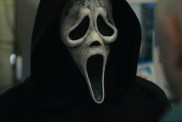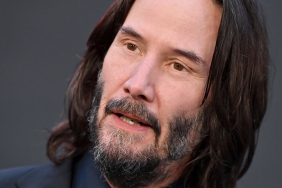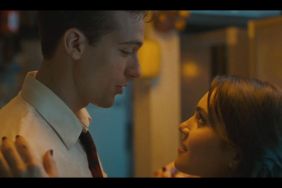On February 3, 2003, actress Lana Clarkson was found dead of a gunshot wound to the head in the mansion of record producer Phil Spector, a well-known eccentric who had a long history of wielding firearms. Before that night, it had been many years since anyone heard much from Spector and decades since he had a string of musical hit records exemplifying his famous “Wall of Sound.” After writing and producing classic hits for various girl groups during the ’60s, Spector produced everything from The Beatles’ “Let It Be,” most of John Lennon’s records and The Ramones’ “End of the Century.”
After Clarkson’s death, Spector was arrested and posted bail until the trial four years later, which ended with a hung jury. Two years after that, Spector’s retrial ended with him being charged for murder in the second degree and sent to prison for 19 years to life. That was over a year ago, and the incident has left people mystified, especially those who had been in love with Spector’s amazing musical output.
Back in 2007 before the first trial began, filmmaker Vikram Jayanti somehow was able to contact Spector and become one of the first filmmakers in decades to capture Spector talking on film, not just about what happened the night of Clarkson’s death but also talking about his vast musical career. The interview is an in-depth look into how Spector’s mind works, not just spouting “facts” as he sees them, but getting into his childhood and his relationship with John Lennon, the Beatles and God. The interview is interspersed with 21 of Spector’s most popular hits, used as a soundtrack over footage from Spector’s first trial.
The results are The Agony and the Ecstasy of Phil Spector, a documentary that defies the formulaic structure one normally sees with docs about the history of a controversial figure and creates something that’s just as much about the music as it is about trying to get into the mind of someone who most would consider to be quite mad.
Earlier this week, ComingSoon.net sat down with Jayanti to talk about the movie and its eccentric leading man. Having spent time with Phil Spector before, during and after that first trial, Jayanti may be the closest person to uncovering the truth about what happened the night Clarkson died, and he shared at least one theory with us as we talked about his riveting and often eerie film.
ComingSoon.net: I’m curious about when you started thinking about making a movie about Phil Spector? This obviously covers not only the trial but also his music, so were you thinking about doing this before he was arrested?
Vikram Jayanti: The film was commissioned by the BBC, by Anthony Wall who runs “Arena,” which is their top flagship arts show. He produced “Wisconsin Death Trip,” and he was one of the producers on “No Direction Home,” the Dylan film. He’s crucial for all of us making serious films, feature documentaries, about the arts, and he always has wanted to do Phil Spector. He’s always said that the Holy Grails were like The Beatles and Phil Spector and somebody else. He was thinking about doing one, and my editor who works closely with him said he was thinking about it. I was reading the papers and I was in L.A. when Lana died, so it was in my mind and when I heard Anthony was thinking of doing it, I just called him up and said, “Hey, I’d love to direct that,” so he commissioned me and I produced and directed it. It was really because I’d done a string of films about sort of geniuses at moments of duress in their lives. The one that’s best known is “When We were Kings,” which I was one of the producers on. Since then, I’ve been directing. I did a film about James Ellroy, the crime writer who wrote “L.A. Confidential.” The usual duress story with him – his mother was raped and murdered when he was 10 and it’s an obssessional thing with him. I did Gary Kasparov, the chess genius, who got broken by the IBM super-computer people, so I thought, “Phil.” I actually thought I was never going to be able to make a film about Oscar Wilde’s trials where an artist, who thinks of himself as beyond the normal culture is caught in the battles of the criminal justice system, and they live on two different planets. He’s a great, great artist, just like Oscar Wilde was, but Oscar Wilde died 100 years ago (laughs) so I thought this was the film for me, which is a great artist at this crisis point where the criminal justice system doesn’t care whether he wrote great songs or not. In fact, at the trial as I was watching him, all the time, and I kept seeing him go into a fugue state, and I could tell he was just listening to his greatest hits, and thinking, “What the f*ck am I doing here? Don’t they know who I am?” And that’s sort of the thought I had. I though let me do a very serious investigation of his fantastic roll of hits from 1957, right through “Let It Be” then the first three John Lennon albums and “All Things Must Pass.” I thought why don’t I take his music very, very seriously, but why don’t I use the trial to try to excavate what’s in the music that somehow helps explain or predict or at least give us some kind of feeling for how he ended up in court on a murder charge.
CS: Had the court trials actually been going on for a while before you sat down with him?
Jayanti: No, no, no. What happened was I sent him a letter, I Fed-exed it to him in his castle, I got the address off Court TV’s website. He’s famously never spoken seriously ever to a filmmaker. For 50 years, he refused to, and I sent him this note, and I said, “Look, whatever happens in this trial, you’re likely to end up being remembered because it’s going to be so sensational whether you’re convicted or not. You’re going to be remembered for Lana Clarkson’s death, and this is a good moment to think about how your musical legacy is going to be obscured, and I think I’m the person to celebrate your musical legacy. But also, I can’t ignore the trial because it’s about to happen.” So I said, “So I’m going to do something between the two, and I’m doing it with BBC financing which means that it’s the world’s Ministry of Culture and it’s me.” He wrote back the next day literally saying, “You sound very honest, come to the castle.” It turns out he had copies of three of my films. He had “When We Were Kings” and “Game Over,” which is of course about a genius. So you need to be aware that he also sees himself as a genius, so here’s someone, me, the currency of my work is genius. I did a film about Lincoln, “The Darkness of Abraham Lincoln,” which was a big film about his suicidal depressions, and he’s a Lincoln nut, Spector, so he already had copies of three of my films. It was amazing, I hit lucky and he just said, “Come on over.”

CS: Spector’s ego and hubris is legendary, but it really takes it to another level to believe you can sit down and talk on camera about stuff while a trial is about to start. He must have had lawyers at the time who were saying, “Don’t do this, don’t do this,” so did he just not listen?
Jayanti: He just made the decision on his own and he said to me and Anthony Wall, who flew over from England for the first two meetings. He said, “Look, I agree, we’ll do the film, and I’ll give you the music for free. I understand the BBC rules–because it’s a public service thing, it’s like NPR–no editorial input, no approval and no fee.” Then we began a conversation that lasted a few weeks, then finally I brought the cameras in and we shot what ended up being a 3 and a quarter hour interview which I was really just practicing during that interview. We’d agreed to five days of filming, so I was just laying out the themes and getting to know him on camera. We already knew each other quite well by then. And the lawyers arrived early for the trial, so the next four days that we were going to shoot, they had him doing jury selections work, which was two weeks early. So we didn’t shoot anymore. And then the trial began. By then, we were fairly close to each other so I went to the trial. I was there a lot for the six months of the trial. I’d sit with his wife and his bodyguards and everybody else in the courtroom was the press and the people who came down for the freak show, it was like the O.J. trial.
CS: You did talk to him sometime after or during the trial though.
Jayanti: All through the trial… but I didn’t film anymore. We just kept trying to find another weekend to do and if a week had gone badly, he’d just not feel up to it, so I was just hanging out. That interview became the whole film. What happened was that I went back to the BBC and we watched it and thought, “You know what? Everything’s in it.” I don’t do question and answer interviews, I just do conversations, because I think I’m on a level playing field with all the people in my films so what happens is I just hang out and we talk as if we’re just talking, sort of like what you and me are doing right now, it’s a conversation. What happens is the people I’m working with, they become intellectually and emotionally engaged, because they’re having a proper conversation, so you get them to be honest and open. Phil’s honesty is a curious thing, because many of his facts are not actually factual, but he was open, so he was totally himself. No one’s ever done that with him.
CS: I’m just really shocked that the interviews were all from one relatively-short session. Normally, for a movie like this, you would do five days of interviews and then edit them down to the best 90 minute of material, but you don’t even use that much time.
Jayanti: Oh, less than that. What’s so great about Phil and what I didn’t expect is that he’s a brilliant talker. He’s incredibly funny. When he’s not being nuts, he’s incredibly charismatic, and you see a side of him that you don’t expect. You hear all these stories. Half the people I know have had guns pulled on them by him, all that stuff.
CS: Well, that’s the thing. We don’t really see him talking much, because the media mainly shows him in court sitting silently or walking to and from his car.
Jayanti: Well, a few times he got unleashed in the early days, when he was firing all his legal teams every year and delaying the trial. He was just saying stuff that was only going to destroy his possibility of ever winning this case. So I think it was wise of him to stop talking to the press, but I think with me, he genuinely felt that I was genuinely interested in understanding his musical achievement. I never promised him anything, but I think he thought that with this film out there, made by the Ministry of Culture, the BBC, made by me, because I worked on “Born Unto Brothels,” ’cause that won an Oscar, too. He thought that this was a significant filmmaker, a serious guy, not a freakshow, coming from Britain not America, so it’s not going to be tabloidy…
CS: Yeah, you see in the movie that he does have a respect for Britain that he doesn’t have for America.
Jayanti: Yeah, exactly.
CS: It’s surprising that he never actually just moved there.
Jayanti: Well, he doesn’t like flying. But I think he felt that his best shot–now, this is purely speculative–was that if I made this film, it would somehow it would seed the clouds of the atmosphere around him and his trial and it would help his chances in court, even though we weren’t going to show it until after the trial. I think somewhere in his mind, he must have felt (that) and I think he was right. Not in terms of the outcomes of the trial, but in terms of this film will be one of the ways he’s remembered and celebrated for his musical legacy, as opposed to another “Hollywood Babylon” story. This is a great “Hollywood Babylon” story, this is the “Hollywood Babylon” story that all the others have been leading up to. Over the hill, ancient producer living in seclusion in a castle, former starlet 40 years old on the slide down, they meet, it’s a perfect storm, somebody dies. So Phil will always be remembered by the freak show aspects of his life, but this creates a counterpoint. When have you seen a film with 21 hits like that in a row, and I play them in full, because the only way you can really understand what he’s done is to give the same ears to the music as he brought to it when he made it, which means you have to hear the whole thing, you have to understand the structure and the production of things. I made a really difficult decision as a filmmaker. The one thing I did promise him… I didn’t promise him anything but the one thing I did promise him was that in the middle of the film, I would stop the film and play the whole of “River Deep, Mountain High,” because I just can’t believe what an amazing song that is, and no one’s ever done that before, no one’s ever stopped a film just to enjoy a song. Documentaries, they have 12 seconds of this, a bit of that.

CS: Right, because you have to keep things moving.
Jayanti: But I wanted to see if using the trial as the narrative engine, can I keep the film moving while playing 21 of these amazing songs in full, and some of them twice.
CS: Before you talked to Phil, did you have any idea which songs you were going to use? What kind of research did you do before going into interview him?
Jayanti: I don’t usually do any research. I kind of show up, and that makes the conversations fresh. I mean, I’ve never done any research.
CS: But you just have already known a lot about him or his music then.
Jayanti: You grow up with that stuff. I’m 55 years old, so it’s one of the soundtracks to my generation. I didn’t know some of those songs. I didn’t know “To Know Him is to Love Him” because that was ’57 and I was two years old, and yet, everyone else loves that. Weirdly, I’d never heard it. I didn’t know he produced “All Things Must Pass” and the “Concert of Bangladesh,” so I just showed up, and he told me stuff, and I thought “Oh, that’s interesting.” I checked a lot of the facts and a lot of the facts weren’t true and I thought, “You know what? I’m more interested in seeing the nakedness of this man’s mind.” I thought that I wasn’t to ask him why he’s a gun nut, I’m not going to ask him the questions another documentary maker would ask, not because I was letting him off lightly, but because I knew the trial would cover that sh*t.
CS: I wanted to know about that, because this is all in Phil’s words, and the only time we hear other people talk about him is in the trial. Did you ever feel the need to talk to people around him and get another side to the story?
Jayanti: No. That was one of the things I decided from the start. I didn’t do any research, but I had one decision from the very start. I was only going to talk to Phil on-camera, because I wanted to get inside his head, and I wanted to create almost a claustrophobic film where we had no skin between us and this tormented crazy genius. That’s the only reason I make films. I want to know what it feels like to be somebody else. If you’ve seen a few of my films like “Game Over,” that’s about paranoia. I had other people talking in it, but really, what you’re doing is getting inside the head of somebody we have no experience or comprehension of. How do you comprehend a mind like Gary Kasparov’s? I think by the end of the film, you’ve got identity with him, you know what it feels like to be the super-brain and be crushed by forces outside your control and not know what the f*ck hit you. That’s all I’m ever trying to do with these portraits of these geniuses. I’m trying to find out what it’s like to be there. When I watched him in the court, I thought I suddenly understood that he’s listening to his greatest hits while the lawyers are droning on and on. I wasn’t going to ask opinions. I want the audience just to experience the music. There are only four elements in the film: There’s Phil talking, there’s the trial and I edited the trial footage to the music very specifically word-for-word. “I met him on a Sunday and went home with him, Da-Doo-Ron-Ron, Da-Doo-Ron-Ron”… you’re watching the surveillance footage of (Lana Clarkson) meeting Spector and driving off with him. There’s a lot of moments where the lyrics hit on what we’re seeing even though it’s from the trial. I had him, the trial, the music and the critical commentary on screen.
CS: Was that all written new specifically for the film or something you found elsewhere?
Jayanti: Mick Brown had just written this book called “Tearing Down the Wall of Sound” and he’s the only other person Phil’s let in and talked straight to. Six months before Lana Clarkson died in Phil’s house, Mick Brown somehow managed to get an interview with him. A very serious journalist Mick is, the biggest rock ‘n’ roll journalist. Mick got in there and wrote this piece, and it was a very god piece. What’s really weird is that Phil read (that piece) the day before the woman died, and he’d been on the wagon until then. I can’t help but think that he read this thing–“The Lost Genius of Rock ‘n’ Roll” was the title–and I think it probably shifted something inside him, and he went out that night, went drinking, and Lana Clarkson died in his house. That’s what’s really weird. And of course Mick was the go-to guy as soon as the shooting happened, so Mick was in there and he produced this book about it. What I thought was that I wanted to have a critical element. I was a little wary of using up screen space ’cause there’s so much interesting stuff happening on screen with his writing, but I think it adds a layer that’s really interesting because he’s doing critical analysis of the music. Those are the only four components I used. I didn’t use any other components. No other talking heads. I try not to make films with talking heads. I try to make films that are about feeling, not information. How do you break down the wall between us and the other? I’m trying with all my films to do that, which is what I want to know what it feels like to be Phil. The other analogy I’ve used a lot is Napoleon on his final prison island, because in the castle, he was living there, pacing, and it’s like his universe that was so vast with the hits, had shrunk to this castle and the courtroom. I want just to know how that felt.

CS: He’s been in prison for a year now, so have you had any contact with him at all? Has he seen the movie?
Jayanti: We made sure that a copy reached him well before he went to prison. Quite as soon as the film was finished, we sent a copy over, but we were under this gag order, because Phil wasn’t allowed to talk to me anymore after the first trial until the second trial was over. I wrote a piece in the English papers saying “Why don’t we do the thought experiment of imagining he didn’t kill her?” I wrote a 7000-word piece about what I’d seen during the trial. Phil kept saying she shot herself and that’s a really crazy defense. Everyone knows he’s a gun nut. “It’s merely a matter of time,” everyone thought.
CS: Speaking of which, I was curious why you didn’t even mention any of the work he did with the Ramones, because that was a famous story of two different worlds trying to work together and what a clash that became.
Jayanti: No, I agree. I could have gone into the Ramones, because they’re biggest selling record he produced, and I could have gone into Leonard Cohen. He pulled a gun on him, but you know, that wasn’t my interest, because I didn’t think I would learn about… that was a great story and anecdote, but they weren’t about music through Phil’s eyes. I could have gone into the story he told me about him and Celine Dion where he produced the “Starsailor” album, which is a fairly contemporary record just ten years ago, and was just making her resing and resing, and her husband/manager pulled the plug. I just wasn’t interested. I wanted to do the songs that I related to that somehow felt would cast light on the trial, and the trial would cast light on the song.
CS: You must have shown this movie at a lot of festivals already.
Jayanti: Yeah, all over the world.
CS: What’s the reaction like to it? Do people feel that the movie is apologist and trying to deflect attention to his music and away from his guilt?
Jayanti: Everyone asks me if I think he did it, and I always surprise by saying them, “I think there’s a reasonable doubt.” I have to look out for Stockholm Syndrome, because you’re spending so much time with somebody and you fall in love with them. I have to be in love with the people I make my films on, because I have to be so intimate with them, but at the same time, you maintain some sort of critical distance. I have to tell you that that really wasn’t my primary concern, whether he did it or not. My primary concern was trying to do this act of empathic imagination, to feel his torment. I mean, there’s stuff I could have put in there that made him look like the devil. As it is, there is some weird sh*t in there.
CS: I’m not sure how Martin Scorsese will feel if he sees that Phil takes credit for his career.
Jayanti: Well, Phil takes credit for a lot of things. Mick Brown’s book deconstructs all the things that Phil’s taken credit for that Phil didn’t do. At the same time, there’s always a kernel of truth. He was actually on the plane when the Beatles came to America the first time. Dick Fontaine, head of the British film school, he sat next to him, and he thought “Who is this midget stinking with fear (cause he’s so afraid to fly) dressed like a dandy with this hat?” the Beatles were in front and it was Phil Spector, so when Phil talks to you about his closeness with the Beatles even then, there’s a kernel of truth because he was on the plane. I was just looking for where the kernel of truth was, not necessarily the facts. That’s one of the things audiences will ask me about. They’ll say, “It sounds like he lies all the time.” I would say again that I wanted to show his process. I didn’t need to take apart the lies. Mostly they ask me if he’s guilty and the other big thing they say is “Oh, f*ck. He did all that music?”
Next up for Jayanti is a documentary about 80-year-old British/Australian artist and musician Rolf Harris, a movie he’s currently halfway through shooting. That should be and interesting movie, not just for Harris’ many international fans but also for the many Americans who have no idea who Harris is.
The Agony and Ecstacy of Phil Spector is now playing at the Film Forum in New York City and August 19 at the Egyptian Theatre in Los Angeles and will play in other cities over the coming months.









